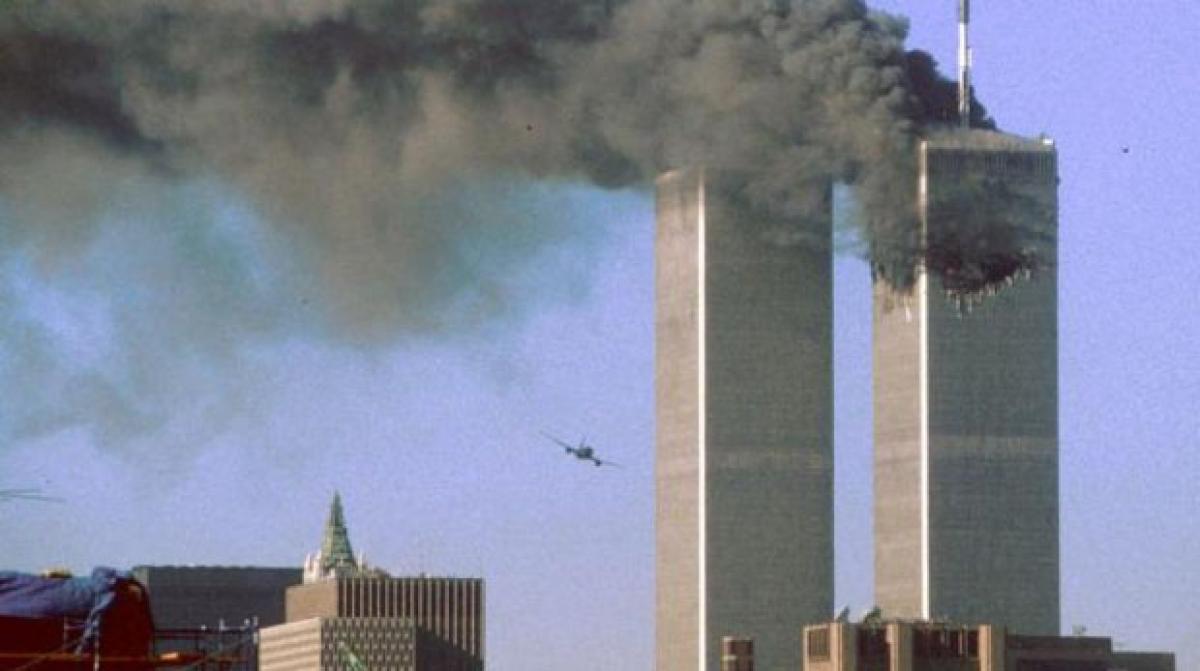Live
- ‘Get Set, Grow Summit 2024’ Focuses on Digital Detox for Families
- Stokes motivates his team to put in extra effort, says England pacer Potts
- From overcoming setbacks to leading India in U19 Women’s Asia Cup, Niki Prasad's amazing journey
- Driving Enterprise Security: Inside Venkata Reddy Thummala’s Leadership Journey
- Constitution debate: PM Modi hails 'Nari Shakti'; makes strong pitch for 'United Bharat’
- Abhijeet Bhardwaj: Revolutionizing Enterprise Analytics with Innovation and Expertise
- Bihar: Inquiry initiated against principal who went to buy veggies during school hours
- Press Sri Lankan Prez for release of Indian fishermen: TN Cong MP to EAM Jaishankar
- TN: DMK postpones executive meet due to heavy rains & Parliament session
- Porous silicon oxide electrodes can fix durability issues in batteries: Researchers
Just In

The U.S. Congress on Friday released a long-classified section of the official report on the Sept. 11 attacks that discussed potential links between some of the hijackers and Saudi Arabia but said the links were not independently verified.
The U.S. Congress on Friday released a long-classified section of the official report on the Sept. 11 attacks that discussed potential links between some of the hijackers and Saudi Arabia but said the links were not independently verified.
The 28 pages of the report on the 2002 investigation focus on potential Saudi links to the 2001 aircraft attacks on the United States, in which nearly 3,000 people died.
They were issued by the House of Representatives Intelligence Committee after years of wrangling in Washington between Congress and different administrations, Republicans and Democrats, and urging by families of those killed.
The release of the previously classified pages is unlikely to end the controversy over the role of Saudi Arabia, an important U.S. partner in the Middle East. Many U.S. officials who opposed their release had worried they would damage diplomatic relations.
Fifteen of the 19 Sept. 11 hijackers were Saudi citizens.
"According to various FBI documents and CIA memorandum, some of the September 11 hijackers, while in the United States, apparently had contacts with individuals who may be connected to the Saudi Government," the report said, giving a catalogue of alleged links.
They included reported contacts between Saudis in California and a statement that a man who was reportedly a Saudi Interior Ministry official stayed at the same Virginia hotel as one hijacker in September 2001.
Another section said that Omar al-Bayoumi, said to be a Saudi intelligence officer, met with two hijackers at a public place after they arrived in San Diego. It said, citing FBI files, that his salary rose to $3,700 a month from $465 two months after two of the hijackers arrived in California.
One page described how two of the hijackers asked flight attendants technical questions during a trip in 1999 from Phoenix to Washington to attend a party at the Saudi embassy. One tried twice to enter the cockpit. The plane made an emergency landing and the FBI investigated, but did not prosecute.
Controversy Will Continue
The Office of the Director of National Intelligence said its agreement to the release is not an indication that the intelligence community agrees with the pages' accuracy or concurs with the information it contains.
The office also on Friday released a declassified summary of an assessment of whether Riyadh may have supported al Qaeda before and after the attacks, saying the Saudi government and many of its agencies had been infiltrated and exploited by individuals associated with or sympathetic to Osama bin Laden's militant network.
Several members of Congress said they were pleased the pages had finally been released. Representative Adam Schiff, the top Democrat on the intelligence panel, said he hoped the release would quiet rumors.
"The Intelligence Community and the 9/11 Commission, which followed the Joint Inquiry that produced these so-called 28 pages, investigated the questions they raised and was never able to find sufficient evidence to support them," he said.
Legislation that would allow families of Sept. 11 victims to sue Saudi Arabia has been passed by the U.S. Senate and is making its way through the House, despite President Barack Obama's threat to veto the measure.
A Sept. 11 families group made clear the pages' release would not stop their push for the legislation. "Congress has to stand up for the interests of the thousands of innocent Americans who lost loved ones on 9/11," the "9/11 Families" organisation said in a statement.
Saudi Arabia's ambassador to the United States, Abdullah al-Saud, said the country welcomed the release.
"We hope the release of these pages will clear up, once and for all, any lingering questions or suspicions about Saudi Arabia's actions, intentions, or long-term friendship with the United States," he said.
White House spokesman Josh Earnest told reporters before the pages were released that they would show no evidence of Saudi complicity.
The Obama administration sent a declassified version of the 28 pages, with many lines and sentences blacked out to protect intelligence sources and methods, to Congress on Friday morning. The House intelligence panel released it a few hours later.

© 2024 Hyderabad Media House Limited/The Hans India. All rights reserved. Powered by hocalwire.com







